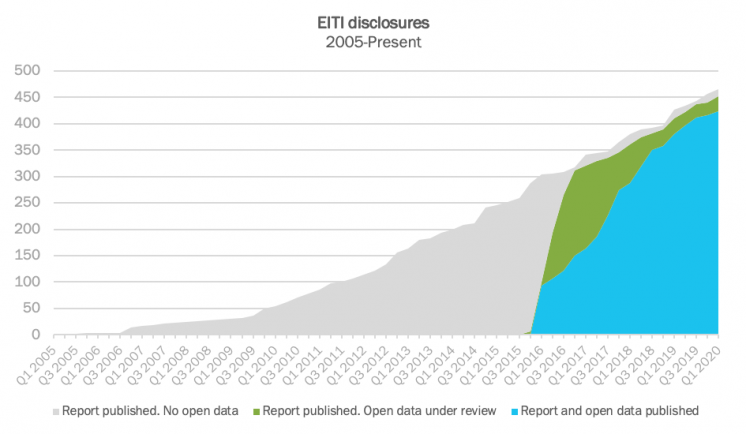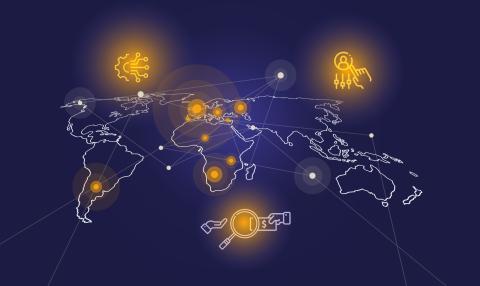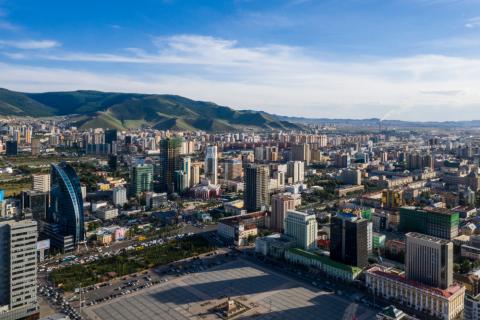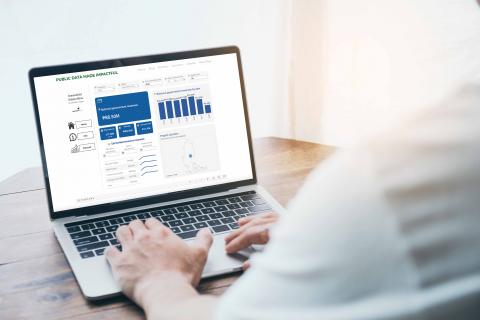
As EITI implementing countries are faced with the extraordinary challenges of the Covid-19 pandemic and resulting economic downturns, the need for transparent governance is as relevant as ever. In times like these, open data in the extractive industries can serve as a bedrock for responsible and smart policy choices. In this blog, we explore the role that open data plays in informing important debates on extractives governance.
Open data is a powerful tool. In an interconnected and digital world, data can revolutionalise and improve the way societies are governed. Open data is based on the principle that information should be freely available to everyone; that it can be accessed, used and republished without restrictions or mechanisms of control; and that it is open for public scrutiny. In the context of extractives governance, data is a vital tool for keeping governments and industry accountable – and spurring informed public debate.
Who uses open data?
In the extractive sector, different users of data have different needs. International organisations rely on national data to produce global economic forecasts. Governments need detailed revenue data to shape national policies and reforms. Industry often wishes to present their social contribution to communities, outside of regular payments to government. Citizens and civil society wish to understand how companies operate, and how governments make use of the funds allocated to them.
To respond such a wide array of needs, information has to be flexible to accommodate different methods of analysis – that’s where open data comes in. Data reported through the EITI has been made available in open format since 2016. The new EITI Open data policy, launched in June 2019, aims to improve transparency about government and business activities and increase awareness about how countries’ natural resources are governed.
How open data is consolidated?
EITI implementing countries are required to submit information that is readable by IT applications and programmes and can easily be combined with other data sets. The “Summary Data Template” is the EITI’s tool for consolidating and publishing structured data on the extractive sector. It is, quite literally, a consolidated spreadsheet of EITI reported data on a specific country or topic. Originally developed in 2016, it was amended in 2019 to reflect the many recent developments of the EITI Standard, such as project-level reporting, beneficial ownership, clarifications on state-owned enterprises, and systematic disclosure of data.
A common criticism of EITI reporting is that data is often outdated by the time of publication, of poor quality or insufficiently used. Summary data can help to solve this challenge in a number of ways. First, standardisation increases the quality and consistency of the data input. Second, encouraging completion and use by national secretariats will help to improve the timeliness of the submission. Finally, more accessible, usable data will enable better public debate.
As countries shift away from EITI reporting as a separate process and towards the integration of disclosures in government and company systems, the nature of EITI Reports will change. In turn, governments and companies will take ownership of data through their own reporting platforms. Summary data is the only standardised tool that bridges the gap between systematic disclosures and gaps in EITI reporting required by the EITI Standard. Six months after the adoption of a new template, EITI implementing countries and partners are beginning to see this value.

Open data for better debate
Designing a database which answers all questions posed earlier is a nearly impossible. But there is value in widening the scope of the data itself to appeal to a wider audience, by including information such as gender, environmental payments, and state participation. Through standardisation, data can be sorted and compared, so that analysis can be put into context.
Let us take an example: Determining the contribution of the extractive sector to a country’s economy or government budget may be interesting for a government or ministry. For citizens, however, it is more relevant to know exactly how much revenue this represents for them. How much did mining companies spend on social expenditures in their region? How much revenue do the extractive industries generate per citizen every year? Open data can help to answer these types of questions.
However, improving the accessibility or timelines of data does not necessarily mean that citizens will engage with it. Skills are needed to analyse it in a way that can inform policies. Here, there is an opportunity for researchers, partner organisations and local EITI practitioners to analyse the data and disseminate it to the wider public in a way that is understandable and meaningful.
By easing and speeding the collection of the data, systematic disclosure can carve more space for the analysis and the formulation of relevant knowledge and propositions to policy makers and the public. The Summary Data Template is an essential tool to help achieve this objective.
For an example of how open EITI data can be used and analysed, check out this blog series by research and communications analyst Marco Zaplan.



